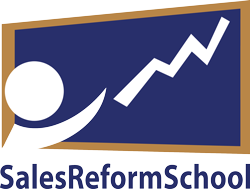Here’s a frequent conversation I have with friends, colleagues, prospects, clients:
FRIEND: How do you get your clients?
ME: It’s a lot of conversations like this one.
FRIEND quizzical look on his face: What do you mean?
ME: Well, when I talk to people about what I do for a living, it’s my opening to inform them about my Dirty Dozen.
FRIEND: Your what?
ME: In any business, but especially Business to Business sales, the issues a company helps others overcome can be thought of as the more-than-annoying issues that your clients face every day or at least should worry about every day. If they don’t deal with them, they fester and can damage the whole enterprise. These pests remind me of the rag-tag delinquents and convicts Lee Marvin whipped into shape in the movie of the same name.
If everyone I know know the issues or concerns that my clients have that I help them address and overcome, then they become my advertising and marketing team. If they experience any of my Dirty Dozen or know of someone else who is, it’s my goal that they remember to think of me. If I just talk about my features or my “stuff” then I am leaving it up to my audience to figure out when they or one of their contacts would need what I have to offer.
FRIEND: So, what’s your “Dirty Dozen”?
ME: well, I’m not about to go into a solilloquy, instead I rattle off a few of the below concerns sales and marketing execs face –
- No process for ensuring that sellers are putting out the same message in sales conversations as the executive team is creating on a higher level – that is, marketing and sales are not integrated.
- Prospects attempt to treat what they sell as a commodity.
- Sales cycles inexplicably long and expensive.
- Salespeople find themselves having to unseat an incumbent’s product or service.
- Maintaining the ‘status quo” is one of their primary competitors.
- It takes too long for new hires to make their first sale or management wants to insure a quicker time to first sale.
- Salespeople too often “Wing-it” and rely on the product too early in the sales cycle, instead of having well thought out conversations with the buyers about goals, objectives, challenges and needs.
- The decision to purchase has to be approved by ‘multiple executives’ who have diverse business issues and who are typically risk averse.
- Prospects require your product or service to demonstrate a quick and clear cost-versus-benefit analysis even to be considered.
- What they sell requires a major change in thinking by your prospect.
- The team is composed of veterans who each bring to the job their own way of selling with no unified dictionary of terms and processes or less seasoned folks with no process at all; It is hard to provide skill and opportunity coaching with everyone doing their own thing.
- Within the sales team, there is not a process for sharing information on opportunities.
In any company, if you are a marketer, it’s your job to condition the market to think of your company when a particular goal, issue or concern arises. For me, my customer’s goal is usually to improve sales performance, but that is too general and broad.
My Dirty Dozen address everyday issues that trouble CEOs and their leadership teams. When they eventually focus on any of the Dirty Dozen, I want folks to think of me. By the way, many smart execs tell me that they want a corporate culture where EVERYONE wants to be at least helping drive sales and revenue. Loading up employees with their company’s Dirty Dozen is a good first step.
FRIEND: Yeah, that makes a lot of sense, but I am in sales; finding new prospects, that’s marketing’s job, you just said so.
ME: If you don’t hit your sales number, does your boss want to hear that marketing is not doing it’s job? Ultimately, your pipeline is your responsibility. Also, don’t your shortest sales cycles come from referrals!? They do for me. Arming your contacts with YOUR company’s DIRTY DOZEN will start the referral engine. Sorry for the mixed metaphor. Ms. Kelly – my High School English teacher would not be pleased.
Soooo, what is YOUR Dirty Dozen?
By the way, I am not one to thrust what I do for a living onto others. That’s just me, I am not comfortable doing that. I try not to force rapport. For me, rapport doesn’t work and can be a negative unless I have gained some amount of trust. And as I have said before, I agree with Covey that trust = sincerity + competence.
When asked, however, “So, what do you do for a living?” or specifically about my business, like above, I want to make sure I am prepared. Consider this: At a trade show, cocktail party, kid’s soccer tournament, if you or ANYONE in your company is asked “what you do for a living or what does your company do?”, can you answer in a way that could eventually generate a referral? Or would the listener have to figure out for themselves, when they would need it, whatever it is?
Your Dirty Dozen can be your best weapon to boost your pipeline!

